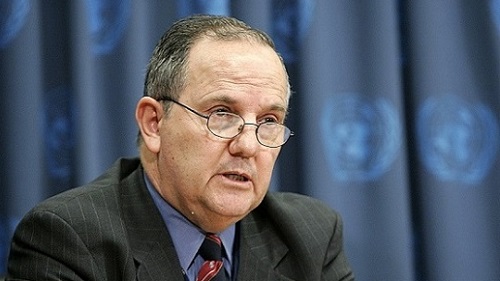Professor Mendez Contributes to Successful Verdict Against Solitary Confinement in Canada

Professor Juan Mendez recently participated in litigation in Canada challenging the federal rules on solitary confinement. Professor Mendez served as an expert witness on several cases, including Reddock v. Canada, which alleges that the Federal Government of Canada breached its obligations under the Canadian Charter of Rights and Freedoms and its duty of care when it subjected inmates to administrative segregation and prolonged solitary confinement. The case was a class action brought by Julian Jordea Reddock.
Professor Mendez wrote a report to the court on the evolving international law standards regarding solitary confinement. He wrote from his experience as the former UN Special Rapporteur on Torture (he served in this capacity from 2010 – 2016), and was deposed, cross-examined, and testified at the oral proceedings. These engagements are part of Professor Mendez’s continuing advocacy for restrictions on the use of isolation worldwide.
Justice Perell, of the Ontario Superior Court of Justice, found for the plaintiff in Reddock on both Charter and tort grounds. He awarded $20 million in base level damages, payable to class members, and ordered individual issues proceedings to assess additional damages for those who suffered greater harm. There are now three district court decisions and two appellate decisions in class actions, all such decisions declaring the federal rules on solitary confinement unconstitutional as being inconsistent with current international standards. In BCLAA and JHSC v. Attorney General of Canada, the Supreme Court of British Columbia ruled that prolonged solitary confinement is unconstitutional. In CCLA and Elizabeth Fry Societies v. The Queen, the Ontario Superior Court reached the same conclusion, also at the appellate level. The Federal Government must now decide if it seeks review by the Supreme Court or if it introduces legislation in Parliament to adapt the Federal Corrections Rules in accordance with these judicial rulings.
These decisions are among the first measures taken to implement the Nelson Mandela Rules approved by the General Assembly of the UN in December 2015. The Nelson Mandela Rules are the new name of the Standard Minimum Rules for the Treatment of Prisoners, an instrument from 1957 that has been widely cited as the required treatment of persons deprived of liberty. They include many norms on prison conditions and, particularly since 2015, standards on the legitimate use of isolation. Specifically, they prohibit indefinite solitary confinement and prolonged solitary confinement, defined as any term of isolation beyond 15 days. They also prohibit solitary confinement of even short term duration against certain categories of inmates: children and juveniles, any person with mental disabilities, and pregnant or breast-feeding women. Precisely, the Reddock v. Canada ruling is about the specific application of prison rules on solitary confinement to persons with mental disabilities. Essentially, in six federal court decisions (four district judges and two appellate sentences confirming), the federal rules applicable in Canada for federal prisons have been declared unconstitutional citing the evolving international standards reflected in the Nelson Mandela Rules: either because they can and do exceed the terms that make them prolonged, or because the decisions to impose isolation are insufficiently surrounded of guarantees of due process, also a Nelson Mandela Rules requirement.
To read more about Professor Mendez’s work on solitary confinement, please see here.